Natural leaders are typically community members who encourage their communities to achieve Open Defecation Free (ODF) status. In Cambodia the term “natural leaders” is not utilized in the CLTS approach. There are at least two reasons 1) it does not directly translate well into the local language and 2) there is a local term commonly used in the rural development context which is more readily acceptable to all ie “Community Focal Person” or “Village Focal Person”– abbreviated into VFP”. While it may sound like it completely misses the essence of “natural”, the term VFP is well understood as someone who has skills and experiences to be the leader or focal point in activities or efforts that require the participation of many people.
CLTS was first introduced to Cambodia by CONCERN Worldwide in 2004, but without immediate follow up. UNICEF and Plan Cambodia started to implement at a larger scale in 2006. CLTS is now an approach to rural sanitation improvement as shown in the National Action Plan (NAP) for Rural Water Supply, Sanitation and Hygiene (RWSSH) 2019-2023. The number of communes that attain ODF status has become one of the Joint Monitoring Indicators (JMIs) of the RWSSH sector. JMIs represent the highest priority work to be implemented by the Royal Government of Cambodia with the support of its development partners.
Ms Khaim Sophorrn is one of the few national female professionals in the RWSSH Sector. She has been working intensively and extensively for rural sanitation improvement since 1996. As a national consultant she has worked for the Ministry of Rural Development (MRD) and almost half of the country’s 25 Provincial Departments of Rural Development (PDRDs) to improve sanitation and hygiene practices. Back in 2006, although she was working for a project that did not promote CLTS, she immediately adopted the CLTS ways of working with communities in her duties as a program coordinator. She triggered communities that she visited and long before the institutional triggering concept was introduced, she triggered PDRD officials through capacity development activities and local authorities particularly at the commune and district levels through various advocacy efforts.
 Ms. Sophornn joined SNV for the partnership between SNV and Plan International Cambodia in the Cambodia Rural Sanitation and Hygiene Improvement Program (CR-SHIP) funded by the Global Sanitation Fund (GSF). SNV was implementing the Sustainable Sanitation and Hygiene for All (SSH4A) Programme. The Programme responded directly to issues in the sector described in the MRD RWSSH Strategy of 2010. It was implemented in the rural areas of the country where in 2008 only 23% had access to sanitation facilities. The Programme targeted areas where there was potential to increase sanitation coverage and to reach open-defecation free (ODF) status at district and provincial levels. Specifically, it targeted 5,600 villages in all districts in target provinces.
Ms. Sophornn joined SNV for the partnership between SNV and Plan International Cambodia in the Cambodia Rural Sanitation and Hygiene Improvement Program (CR-SHIP) funded by the Global Sanitation Fund (GSF). SNV was implementing the Sustainable Sanitation and Hygiene for All (SSH4A) Programme. The Programme responded directly to issues in the sector described in the MRD RWSSH Strategy of 2010. It was implemented in the rural areas of the country where in 2008 only 23% had access to sanitation facilities. The Programme targeted areas where there was potential to increase sanitation coverage and to reach open-defecation free (ODF) status at district and provincial levels. Specifically, it targeted 5,600 villages in all districts in target provinces.
She contributed to the achievement of ODF status of the Banteay Meas District in Kampot Province. Banteay Meas District used to be one of the districts with the lowest levels of sanitation coverage in Cambodia – only 16% of households had access to sanitation. She subsequently joined Save the Children for the implementation of a USAID-funded NOURISH Project, a nutrition improvement project with a strong rural sanitation and hygiene component that provided opportunities for Sophornn to maintain her support to CLTS in Cambodia.
 She is a “natural leader” when she worked with Village Focal Points, Commune Council, Commune Council for Women and Children, District Officers of Rural Development, PDRD and District Governors to support them to develop, implement and monitoring ODF action plans Sophornn’s passion in working for the rural sanitation improvement remains strong throughout all these years. She was well-known among the communities as well as Government staff and local leaders. She found working with poor households with scarce materials and labour and people with disabilities with no access to improved sanitation facilities as the most challenging and sometimes frustrating aspects of her work. However, these are also the main reasons for her continuing interests and passion in helping rural communities to reach ODF status. Among these is meeting some very poor families who managed to join the village collective efforts to reach ODF and some people with disabilities who proved to be strong advocates within their communities. One of these is Mr Seak Phen, pictured here in his wheelchair, who has responded to Sophornn’s encouragement and actively participated as a CLTS village facilitator and eventually recognized as a sanitation role model for his village. He has been helping his village chief who is an old man.
She is a “natural leader” when she worked with Village Focal Points, Commune Council, Commune Council for Women and Children, District Officers of Rural Development, PDRD and District Governors to support them to develop, implement and monitoring ODF action plans Sophornn’s passion in working for the rural sanitation improvement remains strong throughout all these years. She was well-known among the communities as well as Government staff and local leaders. She found working with poor households with scarce materials and labour and people with disabilities with no access to improved sanitation facilities as the most challenging and sometimes frustrating aspects of her work. However, these are also the main reasons for her continuing interests and passion in helping rural communities to reach ODF status. Among these is meeting some very poor families who managed to join the village collective efforts to reach ODF and some people with disabilities who proved to be strong advocates within their communities. One of these is Mr Seak Phen, pictured here in his wheelchair, who has responded to Sophornn’s encouragement and actively participated as a CLTS village facilitator and eventually recognized as a sanitation role model for his village. He has been helping his village chief who is an old man.
He understands that CLTS is the way towards the quality of living, shown through clean homes, clean neighbourhood and clean community. He rides a bicycle with his hands to visit his neighbours (door to door visit) every day. He has known the local sanitation suppliers in his commune and established contact with them. When he knew a villager who wants to construct a latrine he helped to coordinate with suppliers via phone. He wants every household in his village to access sanitation and living in healthy life. He continues to motivate and encourage households to build a simple dry pit latrine first if they cannot yet afford more expensive latrines.
Cambodia is continuing its long journey towards ODF Cambodia. Encouraging results have been documented. In the latest Progress on Drinking Water, Sanitation and Hygiene 2000-2020, WHO/UNICEF Joint Monitoring Report, Cambodia is shown as the best performing country in reducing open defecation practice ie by 16 percentage point from 2015-2020. CLTS has contributed to this achievement. CLTS requires highly committed natural leaders who can contribute at their specific community only or natural leaders like Ms Sophornn who can work across many communities in different provinces as well as with national and sub-national level officials responsible for sanitation improvement.






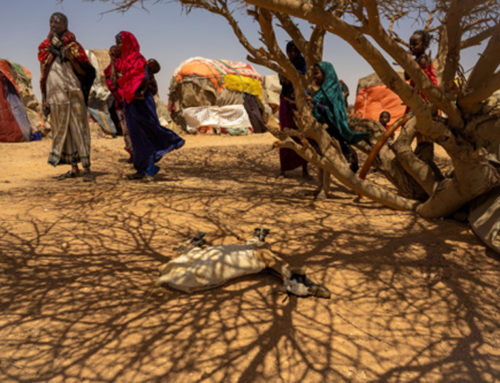
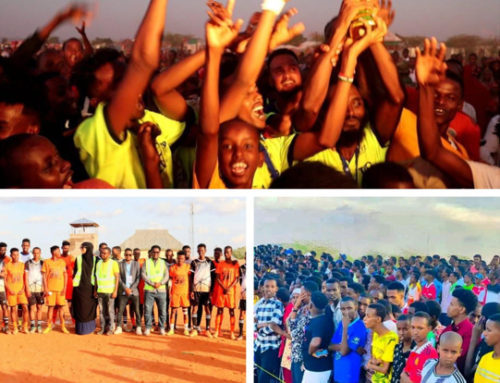
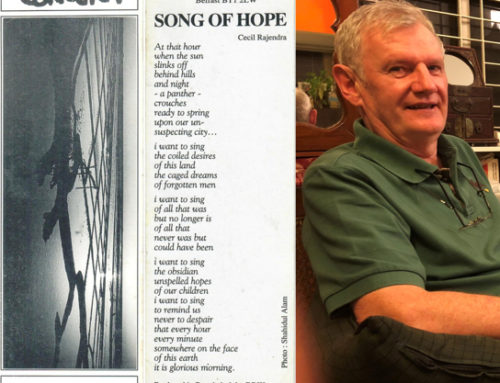
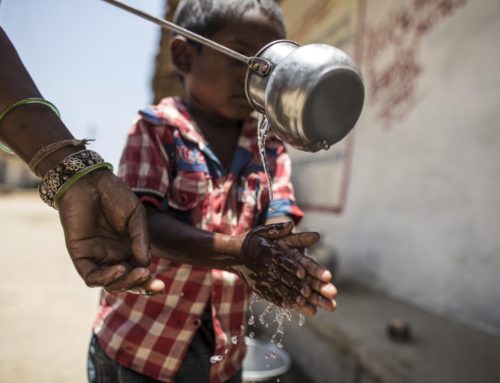
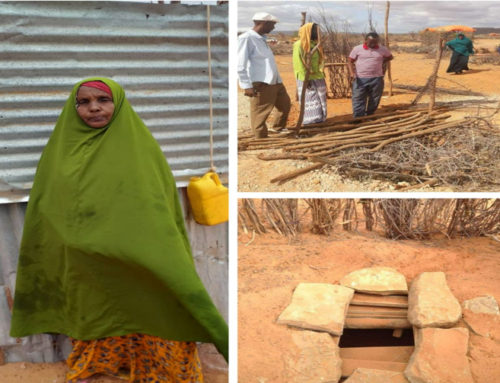
Leave A Comment